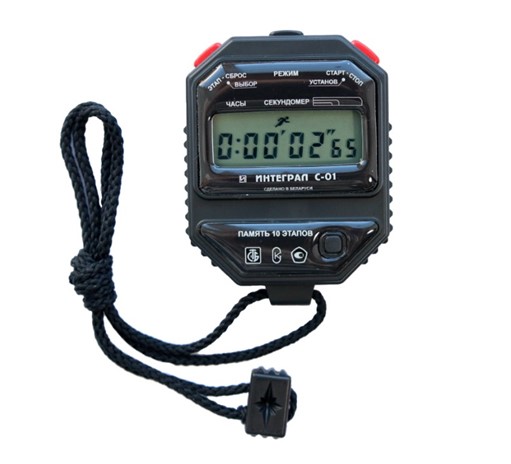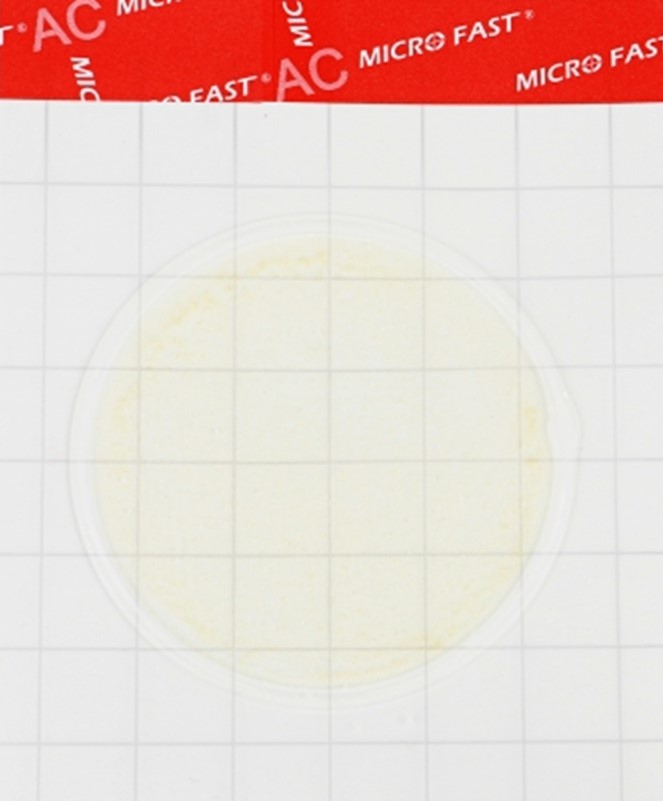Polissya chronicle of success

In any production without modern technologies and approaches, one can hardly count on a significant result. Agriculture is no exception. But still, the engine of progress is people who plow, sow, harvest, store fodder with full dedication ... That is why Alexander Yuzupanov, having taken the position of director of the Polessky Experimental Station at the age of 27, first of all decided to create a real team capable of working on result. Let's talk about how he did it.
Difficulties harden
Alexander Yuzupanov has been managing the enterprise for more than five years. He comes from the neighboring district - Stolin. He says that he did not think about choosing a profession for a long time: on the advice of his parents, after 9 classes he entered the local agrarian and economic college. He received a higher economic education at the Belarusian State Agricultural Academy and returned to his small homeland as an economist at Lyadetsky OJSC. After some time, he was asked to head the Polessky Experimental Station for Ameliorative Agriculture and Grassland.
– In the first year of directorship, I often went to meetings of the National Academy of Sciences in Minsk. I was then only 27 years old, among more than a hundred heads of structural divisions of the National Academy of Sciences, I was perhaps the youngest. And every time questions rained down on me, until one of the scientists said: “We don’t sow on asphalt, let the young guy taste what leadership is.” So I was approved for this position, - Alexander Yuzupanov recalls with a smile. - First of all, I analyzed in detail the economic activity of the economy, identifying weaknesses. They were in every direction, so we had to go to extreme measures.
After discussing the current situation with the chief specialists, we revised the norms of workings. We held meetings and explained to people that from the amount received on the account of the economy for the sale of products, the funds that go to ensure the stable operation of production will be determined first of all: fuel, spare parts and other components necessary for work. In addition, obligatory payments are extinguished. Only 60% of funds remained, despite the fact that the payroll fund exceeded 95% of revenue.
Why then should we buy spare parts, fuel? – asked yourself a question. In response, it was necessary to carry out a reform - to reduce wages. As befits a director, he started with himself. Cut salary in half. At that time, of all the heads of agricultural enterprises in the district, I had the smallest salary, - Alexander Vasilyevich admits. – Of course, tension reigned in the team, many quit, and the burden on those who remained increased many times both in the fields and on the farms. Due to the lack of workers, they worked without days off.
The situation at the enterprise stabilized after a year and a half, and the salary returned to its previous level. Moreover, it increases every year. So, for 2020, the growth was 18%. According to the director, the livestock breeders helped out a lot. Reconstruction was carried out at the dairy farm, a new milking parlor was built. At the time of joining, the farm in Dyatlovichi had 400 heads of cattle, and in two years it increased to 1,000. In 2020, another 517 heads were added to the total livestock. After the fodder base was improved, the gross milk yield increased by an order of magnitude. More than 5,700 kilograms of white gold are obtained from a cow on the farm per year.
And sow and explore
Two years ago, the neighboring farm "Dyatlovichi" was attached to the KSUP "Polessky Experimental Station".
The company was on the verge of bankruptcy. Complete desolation: the fields have not seen mineral fertilizers for a long time, and therefore the return was appropriate. It was necessary to completely revise the structure of crop rotation. To revive the long-abandoned reclaimed Svakha massif with an area of 700 hectares, we had to work hard for several years. Everything was carried out strictly according to technology and last year they were sown with grain. The harvest there was no worse than on our other lands, - the head notes.
In general, crop production in the economy is completely subordinated to animal husbandry. The main thing is to prepare high-quality feed. Therefore, more grasses and corn are sown. Increasing the volume of rapeseed. They are engaged in the cultivation of potatoes. Varieties are chosen mainly by Belarusian ones - "Vector", "Skarb", "Breeze".
In the past, more than 70 scientists of the Academy of National Academy of Sciences worked on the basis of the experimental station. Today there are much fewer of them, but studies of the specifics of farming on peatlands under state programs continue.
– We also support scientific activities from our own funds. Scientists determine the features of agricultural activities on the renovated lands. Republican seminars on the use of peatlands are held on our experimental fields. Scientists come from Belarus, Russia and Ukraine. They remain impressed by our high culture of agriculture, - Alexander Vasilyevich explains. – Today, organic farming is popular in the world. I must say that in our lands, unlike Western European ones, much fewer chemicals are used.
A reliable team can do it all
There is a lot of construction going on in the economy. So, on the outskirts of the village of Polessky, a milking parlor and two cowsheds for 620 heads were built with state support. In 2018, the director decided to go on an experiment: following the example of one of the farms in the Minsk region, he built a wooden calf barn for 200 heads. The result exceeded expectations: the young are healthy, weight gain has not fallen. It also turned out to save money: the construction cost 50 thousand rubles, while a concrete structure would have been three times more expensive.
No less active in the economy is the process of updating equipment. Recently, about 55 units of high-performance and energy-efficient units have been purchased. All this makes it possible to increase the volume of production - both agriculture and livestock. So, in 2020, several tractors and two forage harvesting complexes were purchased under leasing. In the summer, a new harvester "Polesie 1218" was working on the fields.
Leaders in the economy are trusted to manage modern equipment - Vladimir Filinovich, Dmitry Konopatsky, Sergey Kosach. In a word, those who confirm their skills in practice every season.
The team, according to the director, has developed a good one during this time. Of course, not everything is going smoothly yet, but people already have an understanding of discipline and responsibility in fulfilling the assigned tasks.
We have a friendly team of like-minded people. Many of those who once left have returned and are satisfied with both working conditions and wages,” notes Alexander Yuzupanov. – We are working for a common result and we see that our farm has good prospects.
At the origins
In 1945, the Council of People's Commissars of the USSR adopted a resolution "On urgent measures to restore drainage systems and develop drained lands in the Byelorussian SSR", according to which an experimental reclamation station with a large demonstration farm was created in the Pripyat basin. The central estate is located in the former estate of the princes Drutsky-Lyubetsky in the village of Krestunovo. In 1964, it was renamed into Polessky village, which today is an agro-town.
Year after year, plant workers develop recommendations for growing elite varieties of grasses and potatoes in the once wetlands. It must be said that the Luninets region has always been considered a zone of risky agriculture. But, despite all the vagaries of nature, the station staff today, like many years ago, successfully cultivates crops - from grasses to cereals and corn.
By the way, animal husbandry has turned from a subsidiary industry into a leading activity in the economy. If in 1947 there were several horses and only 4 cows in the then Krestunovo, now there are almost 5,000 head of cattle, of which more than 1,700 are a dairy herd.
The farm is actively increasing not only livestock, but also milk yield. So, at the end of 2020, 5787 kg of white gold were received from the cow.
In recent years, the machine and tractor fleet of the experimental station has been significantly updated - 55 units of equipment have been purchased. New tractors, forage harvesting complexes, combine harvesters make it possible to significantly increase production volumes.
Marina VALAKH Pavel ORLOVSKY
Read together with it:
- Cherkizovo Group ranked 11th among Russia's best employers, confirming its leadership in the agro-industrial complex.The HeadHunter rating is compiled based on a comprehensive assessment, including HR questionnaires, surveys of current and former employees, and job seekers' opinions. In 2025 , nearly 1,800 companies from 41 industries participated. Cherkizovo has been included in the ranking for the fourth consecutive year, demonstrating consistent improvement. The company is systematically developing its corpor...
- Declining Beef and Lamb Consumption in Russia: An Analysis of Causes and TrendsAccording to Rosstat, from February 2022 to December 2025, the price of boneless beef increased by 58.5%, while that of lamb increased by 61.5%. By the end of last year, the average price of beef was 933 rubles per kilogram, while that of lamb was 676 rubles. These changes were driven by a variety of factors, including the VAT increase to 22% at the beginning of 2......
- How are calves kept at the Loshnitsa dairy farm? The Prime Minister inspected the farm.January 21, Borisov District. Prime Minister Oleksandr Turchin's schedule today includes a visit to the Loshnitsa dairy farm near Borysov. The head of government inspected the farm's calf care, BelTA reports. The farm is designed to accommodate 800 dairy cows. The average daily milk yield per cow is 25 liters. The farm produces 17 to 17.5 tons of milk daily, exclusively of extra-virgin grade. Turc...




























































